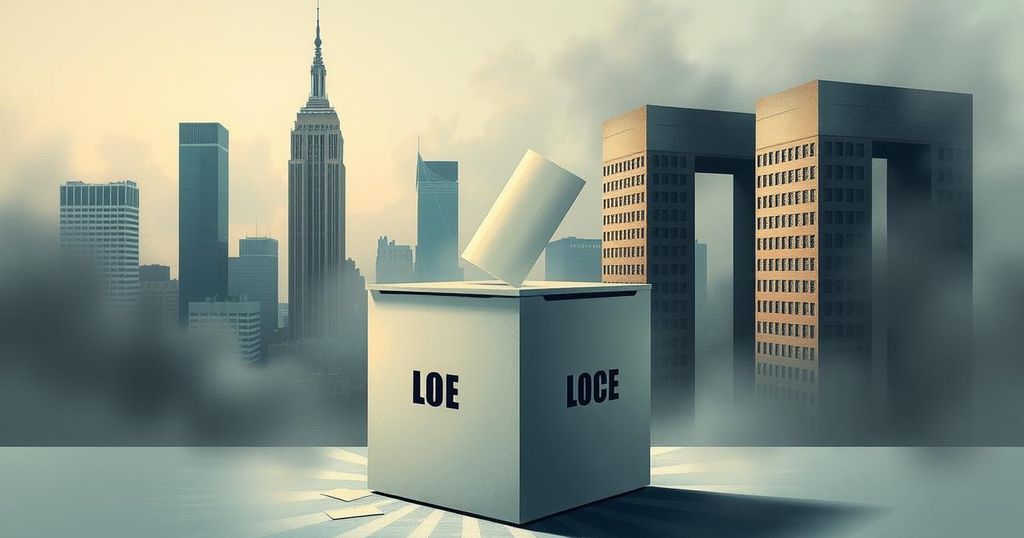Polls have closed in Ecuador’s presidential election; incumbent Daniel Noboa appears set to win with over 50% of votes, avoiding a runoff. The election occurs amid escalating violence linked to drug trafficking and significant economic distress. Citizens hope for urgent reforms to stabilize the country as the final vote count approaches.
Polls have closed in Ecuador’s presidential election, where incumbent Daniel Noboa is poised to secure another term. Early exit polls indicate that Noboa may achieve just over 50 percent of the vote, thus avoiding a runoff against leftist challenger Luisa Gonzalez, who received approximately 42 percent. The final count of votes is expected to take several hours before results are confirmed.
Ecuador, now facing severe violence and political unrest, had nearly 14 million voters participating under strict security measures. Citizens are grappling with a deteriorating economy exacerbated by cartel violence, a situation described by voter Luis Jaime Torres as indicative of the country’s collapse. He expressed a common hope for the new leadership to remedy these urgent issues.
To ensure safety during the election, heavily armed soldiers were stationed at polling locations, prompted by reports of potential threats against the electoral process. Initial infractions during the voting process were limited to minor violations, including alcohol ban violations by approximately 20 individuals. Previously, the election campaign itself had been shadowed by violence, including an assassination that occurred in the preceding election cycle.
Candidate Gonzalez, acknowledging the risks she faces, shared her fears but stressed the pressing need for transformational leadership in Ecuador. Despite these dangers, she is determined to challenge Noboa, who comes from a wealthy political family and is one of the youngest leaders globally, emphasizing his vigorous online campaign advocating for strong security measures.
Ecuador’s escalating drug-related issues have resulted in unprecedented levels of crime as global markets for cocaine expand. Noboa has taken considerable measures, including declaring a state of emergency, to combat this violence, with the military being deployed to secure polling stations. Human rights organizations, however, have raised alarms about potential abuses linked to military interventions.
The current unrest has severely impacted Ecuador’s economy, leading to recession concerns. Noboa has sought assistance from the International Monetary Fund to supplement the nation’s fiscal capacity, made more critical by potential deportations of migrants from the United States. This situation creates dire predictions for unemployment and further economic decline in the country.
In summary, Ecuador’s political landscape is under significant strain as the nation navigates election day amidst violence and an economic crisis. With the polling results indicating a potential victory for Noboa, the path forward remains fraught with challenges that necessitate effective leadership and comprehensive solutions to restore stability.
Ecuador is currently experiencing one of its most turbulent political and social crises in decades, characterized by soaring violence largely attributed to drug cartel activities. The country, once viewed as a safe travel destination, has seen a dramatic rise in crime rates, leading to increased voter concern during elections. The current electoral process unfolds against a backdrop of economic difficulties, threats to democratic integrity, and calls for robust law enforcement responses to the escalating violence.
The presidential election in Ecuador reveals critical challenges facing the nation’s governance and social order. With Noboa likely to win, the new administration will need to address rampant violence and economic instability if it hopes to guide Ecuador toward a more favorable future. The urgency of prepared leadership in the face of overwhelming crises remains paramount for the Ecuadorian populace.
Original Source: www.leaderherald.com






